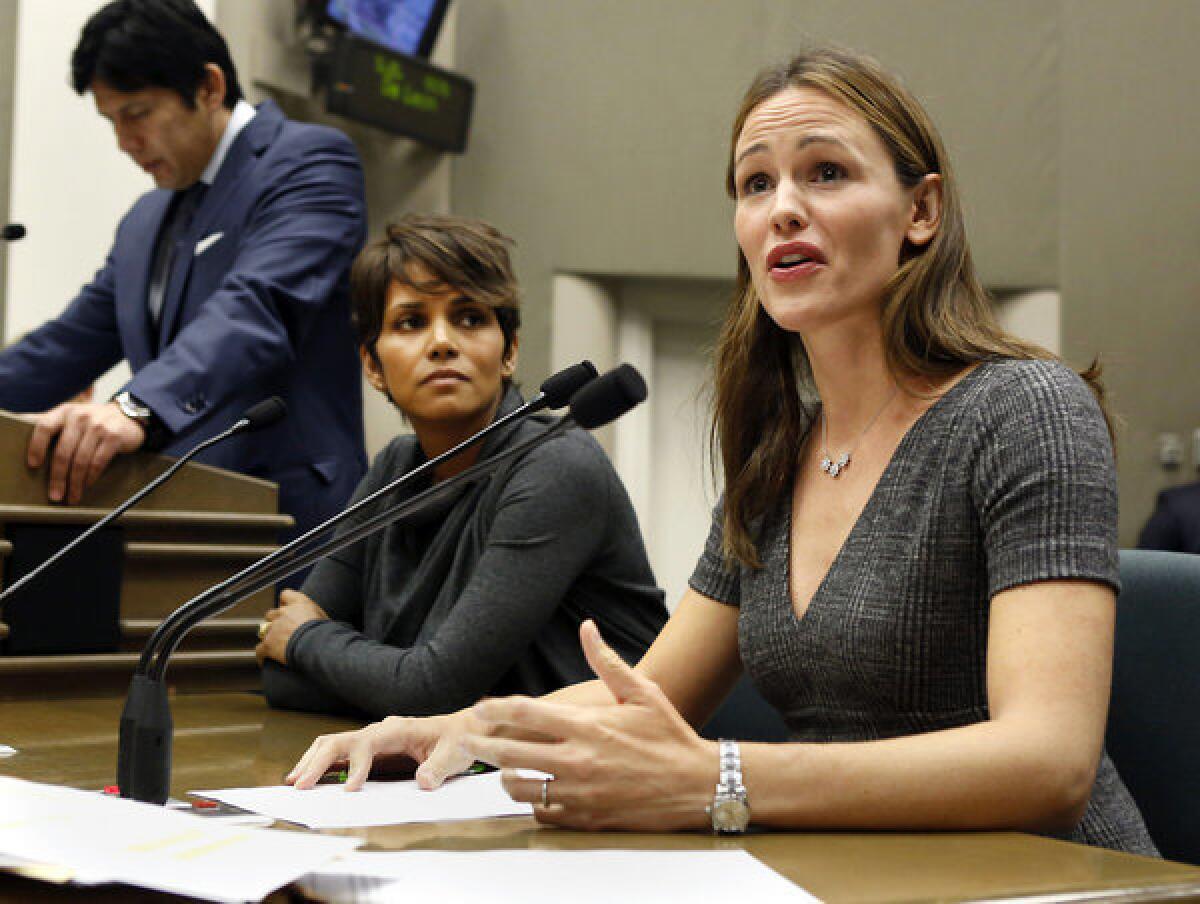Gov. Jerry Brown signs law protecting children of public figures

SACRAMENTO -- Gov. Jerry Brown on Tuesday signed an anti-paparazzi law sought by celebrities and aimed at protecting the privacy of their children.
The legislation by Sen. Kevin de Leon (D-Los Angeles) makes it a misdemeanor to attempt to photograph or videotape a child in a harassing manner if the image is being taken because the child’s parent is a celebrity or public official.
“Kids shouldn’t be tabloid fodder nor the target of ongoing harassment,” de Leon said, adding his bill “will give children, no matter who their parent is, protection from harassers who go to extremes to turn a buck.”
The bill applies to photographs and videotape taken of children because of one of their parent’s professions, but it drew strong support from Hollywood celebrities.
Actresses Jennifer Garner and Halle Berry testified before California lawmakers recently that the bill is needed because when they take their children out in public, they are harassed by the paparazzi.
The new law, which takes effect Jan. 1, also increases the penalty for violators. The current penalty for general harassment is up to six months in jail and a fine of up to $1,000.
The new penalty for harassment of children by photographers or video camera operators is up to one year in jail and a possible fine of $10,000.
The California Broadcasters Assn. and California Newspapers Publishers Assn. opposed SB 606. The newspaper group argued that the bill’s penalties infringe on 1st Amendment-protected newsgathering in public places where public figures have no reasonable expectation of privacy.
The bill, the group wrote to lawmakers, is “overly broad, vague and infringes upon legitimate and protected forms of speech expression.”
ALSO:
State watchdog cracks down on stealth lobbying in Capitol
Gov. Brown signs law that adds convenience to coastal protection giving
Campaign watchdog Ann Ravel confirmed to Federal Election Commission
More to Read
Get the L.A. Times Politics newsletter
Deeply reported insights into legislation, politics and policy from Sacramento, Washington and beyond. In your inbox three times per week.
You may occasionally receive promotional content from the Los Angeles Times.











